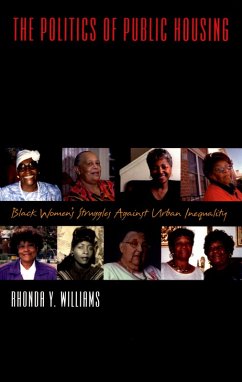Black women have traditionally represented the canvas on which many debates about poverty and welfare have been drawn. For a quarter century after the publication of the notorious Moynihan report, poor black women were tarred with the same brush: "ghetto moms" or "welfare queens" living off the state, with little ambition or hope of an independent future. At the same time, the history of the civil rights movement has all too often succumbed to an idolatry that stresses the centrality of prominent leaders while overlooking those who fought daily for their survival in an often hostile urban landscape. In this collective biography, Rhonda Y. Williams takes us behind, and beyond, politically expedient labels to provide an incisive and intimate portrait of poor black women in urban America. Drawing on dozens of interviews, Williams challenges the notion that low-income housing was a resounding failure that doomed three consecutive generations of post-war Americans to entrenched poverty. Instead, she recovers a history of grass-roots activism, of political awakening, and of class mobility, all facilitated by the creation of affordable public housing. The stereotyping of black women, especially mothers, has obscured a complicated and nuanced reality too often warped by the political agendas of both the left and the right, and has prevented an accurate understanding of the successes and failures of government anti-poverty policy. At long last giving human form to a community of women who have too often been treated as faceless pawns in policy debates, Rhonda Y. Williams offers an unusually balanced and personal account of the urban war on poverty from the perspective of those who fought, and lived, it daily.
Dieser Download kann aus rechtlichen Gründen nur mit Rechnungsadresse in A, B, BG, CY, CZ, D, DK, EW, E, FIN, F, GR, HR, H, IRL, I, LT, L, LR, M, NL, PL, P, R, S, SLO, SK ausgeliefert werden.









